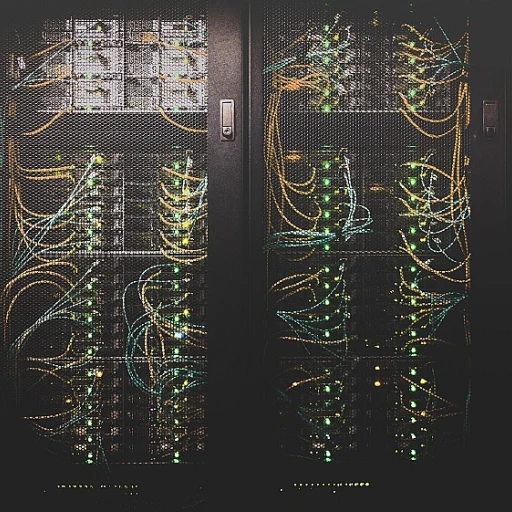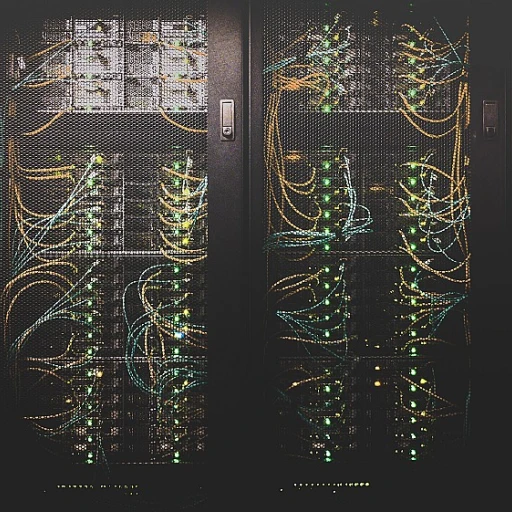
Understanding Commissioning Management Software
Exploring the Basics of Commissioning Management Software
Commissioning management software (CMS) is a pivotal tool in the construction and project management landscape. It serves as a comprehensive system designed to streamline the commissioning process, ensuring that all equipment and systems within a building or project are designed, installed, tested, and operated according to the operational requirements. This software is essential for project teams aiming to enhance efficiency and accuracy during the commissioning phase.
In the realm of construction, commissioning software plays a crucial role in managing the intricate details of project commissioning. It allows teams to handle real-time data, manage documentation, and oversee the entire commissioning process from start to finish. By leveraging a cloud-based management system, teams can access information anytime, anywhere, which significantly reduces the reliance on traditional paper spreadsheets.
One of the key advantages of using CMS software is its ability to facilitate seamless communication and collaboration among the commissioning team. This ensures that all stakeholders are on the same page, reducing the likelihood of errors and delays. Moreover, the software aids in the creation of a punch list, which is essential for tracking incomplete or outstanding work, thereby ensuring a smooth handover process.
As we delve deeper into the features and benefits of commissioning management software in subsequent sections, it becomes evident that this tool is indispensable for modern project management. For those interested in understanding how DevOps is influencing the future of software, you might find this link insightful.
Key Features of Effective Commissioning Management Software
Essential Attributes of a Robust Commissioning Management Tool
In the realm of construction and project management, commissioning management software (CMS) plays a pivotal role in streamlining processes and enhancing efficiency. To truly leverage its potential, understanding the key features of effective commissioning management software is crucial. These features not only facilitate the commissioning process but also ensure seamless integration with existing systems and teams.
Comprehensive Data Management
One of the core features of effective CMS software is its ability to handle vast amounts of data efficiently. This includes managing documentation, equipment details, and project specifications. A robust system will allow for real-time data updates, ensuring that the commissioning team has access to the most current information. This is particularly important for large-scale projects where data accuracy can significantly impact project outcomes.
Streamlined Project Coordination
Effective commissioning management software should facilitate seamless coordination among various project teams. This includes the ability to manage punch lists, track project milestones, and ensure that all team members are aligned with the project goals. By providing a centralized platform for communication and task management, CMS software can significantly reduce the time spent on administrative tasks, allowing teams to focus on critical project activities.
Integration with Existing Systems
Another vital feature is the software's ability to integrate with existing project management systems. This ensures that the commissioning process is not isolated but rather a part of the broader project management ecosystem. Integration capabilities allow for smoother transitions between different phases of a project and facilitate better resource allocation and management.
Cloud-Based Accessibility
In today's digital age, having cloud-based commissioning management software is almost a necessity. This feature allows project teams to access the system from anywhere, at any time, enhancing flexibility and responsiveness. Cloud-based systems also offer the advantage of scalability, accommodating the needs of both small and large projects.
Enhanced Process Automation
Automation is a key component of modern CMS software. By automating routine tasks, such as data entry and report generation, the software can significantly reduce the workload on project teams. This not only saves time but also minimizes the risk of human error, leading to more accurate project outcomes. For more insights on how automation is transforming software processes, you can explore how DevOps improves software quality.
In conclusion, the effectiveness of commissioning management software lies in its ability to integrate comprehensive data management, streamline project coordination, and offer cloud-based accessibility, all while enhancing process automation. These features collectively contribute to a more efficient and successful commissioning process.
Benefits of Implementing Commissioning Management Software
Maximizing Efficiency and Reducing Costs
Implementing commissioning management software in construction projects can significantly enhance project efficiency and reduce costs. By automating the commissioning process, teams can streamline workflows, minimize errors, and reduce the reliance on paper spreadsheets. This not only saves time but also ensures that resources are allocated effectively, leading to cost savings across the board.
Improved Data Management and Accessibility
One of the standout benefits of using commissioning software is the ability to manage and access data in real time. This capability is crucial for project teams who need to make informed decisions quickly. With a cloud-based management system, all team members can access up-to-date information from anywhere, ensuring that everyone is on the same page and that the commissioning activities are progressing smoothly.
Enhanced Collaboration and Communication
Commissioning management software fosters better collaboration and communication among project teams. By providing a centralized platform for documentation and communication, it eliminates the silos that often hinder project progress. Teams can easily share updates, track the status of equipment, and manage the punch list, ensuring that the project commissioning process is seamless and efficient.
Streamlined Handover and Documentation
The handover phase in construction projects can be complex, but commissioning software simplifies this process. By maintaining comprehensive documentation throughout the project lifecycle, the software ensures that all necessary information is readily available during the handover. This not only facilitates a smooth transition but also ensures that the building commissioning is completed without any hitches.
Real-Time Monitoring and Adjustments
With real-time monitoring capabilities, commissioning management software allows teams to make necessary adjustments on the fly. This flexibility is invaluable in construction commissioning, where unforeseen issues can arise at any time. By having the ability to respond promptly, teams can ensure that the project stays on track and meets its deadlines.
For more insights into how automation tools are transforming project management, check out this article.
Challenges in Adopting Commissioning Management Software
Overcoming Barriers in Commissioning Management Software Adoption
Implementing commissioning management software in construction projects can significantly enhance project efficiency, yet it is not without its challenges. Understanding these hurdles is crucial for successful adoption and integration into existing systems.
One of the primary challenges is the resistance to change within the project team. Many teams are accustomed to traditional methods, such as paper spreadsheets, for managing the commissioning process. Transitioning to a digital system requires a shift in mindset and often involves a learning curve. Training and support are essential to help teams adapt to new commissioning software and fully leverage its capabilities.
Data integration is another significant hurdle. Construction projects often involve multiple systems and platforms, and ensuring seamless data flow between these systems and the new commissioning management software can be complex. This integration is vital for real-time data access and effective project management, but it requires careful planning and execution.
Additionally, the initial cost of implementing a comprehensive commissioning management system can be a deterrent. While the long-term benefits of improved efficiency and reduced errors are clear, the upfront investment in software and training can be substantial. Organizations must weigh these costs against the potential for enhanced project outcomes.
Security concerns also play a role in the adoption of cloud-based commissioning software. Protecting sensitive project data is paramount, and companies must ensure that their chosen software complies with industry standards and offers robust security measures.
Finally, the complexity of managing documentation and punch lists in large-scale projects can be daunting. Effective commissioning management software, like Bluerithm, addresses these issues by streamlining documentation processes and providing a centralized platform for managing all commissioning activities. However, ensuring that all team members are aligned and using the system effectively remains a challenge.
Despite these challenges, the benefits of adopting commissioning management software are significant, as discussed in previous sections. By addressing these barriers head-on, organizations can unlock the full potential of their commissioning process, leading to more efficient project handovers and successful building commissioning.
Future Trends in Commissioning Management Software
Emerging Technologies in Commissioning Management
The future of commissioning management software is poised for significant transformation as emerging technologies continue to evolve. One of the most promising advancements is the integration of artificial intelligence (AI) and machine learning. These technologies can enhance the commissioning process by predicting potential issues before they arise, optimizing resource allocation, and improving decision-making processes. AI-driven analytics will enable project teams to analyze vast amounts of data in real time, leading to more efficient project commissioning and reduced time delays.
Cloud-Based Solutions and Their Impact
Cloud-based systems are becoming increasingly prevalent in the realm of commissioning management. These solutions offer numerous advantages, including enhanced collaboration among commissioning teams, seamless access to documentation, and the ability to manage projects from anywhere. As construction projects become more complex, the demand for cloud-based commissioning software will continue to grow, allowing teams to work more efficiently and effectively.
Integration with IoT and Smart Building Technologies
The Internet of Things (IoT) is another technology that is set to revolutionize commissioning management. By integrating IoT devices with commissioning software, project teams can monitor equipment performance in real time, ensuring that all systems are functioning optimally before handover. This integration will be particularly beneficial in building commissioning, where smart building technologies are becoming more prevalent. The ability to track and manage equipment performance remotely will streamline the commissioning process and improve overall project efficiency.
Enhanced Collaboration and Communication Tools
As projects become more complex, the need for enhanced collaboration and communication tools within commissioning management software is becoming increasingly important. Future systems will likely include advanced features that facilitate seamless communication between project teams, ensuring that all stakeholders are aligned and informed throughout the commissioning activities. This will help to minimize errors, reduce the reliance on paper spreadsheets, and ensure a smoother handover process.
Focus on Sustainability and Efficiency
With growing emphasis on sustainability, future commissioning management software will likely incorporate features that promote energy efficiency and environmentally friendly practices. By optimizing the commissioning process, these systems can help reduce waste, lower energy consumption, and ensure that buildings meet stringent environmental standards. This focus on sustainability will not only benefit the environment but also enhance the reputation of construction companies committed to green building practices.
Case Studies: Success Stories of Commissioning Management Software
Real-World Applications and Success Stories
Commissioning management software has proven to be a game-changer in various construction and project management scenarios. By examining real-world applications, we can better understand its impact on efficiency and effectiveness in the commissioning process.
Streamlining Complex Construction Projects
In large-scale construction projects, the integration of commissioning software has been pivotal. For instance, a major infrastructure project utilized a cloud-based commissioning management system to handle the vast amount of data and documentation involved. The project team was able to manage equipment, systems, and processes more efficiently, reducing the time spent on manual tasks and minimizing errors associated with paper spreadsheets.
Enhancing Team Collaboration and Communication
Another success story comes from a building commissioning project where the software facilitated real-time communication among the commissioning team. By using a centralized platform, teams could track the progress of commissioning activities, manage punch lists, and ensure that all team members were aligned with the project goals. This led to a smoother handover process and a more cohesive project management experience.
Improving Data Management and Accessibility
Projects that have adopted commissioning management software like Bluerithm have reported significant improvements in data management. The ability to access and update project data in real time has allowed teams to make informed decisions quickly, leading to more efficient project completions. The software's capability to integrate with existing systems has also been a key factor in its success, allowing for seamless transitions and minimal disruptions.
Overcoming Challenges with Innovative Solutions
While challenges in adopting commissioning management software exist, such as resistance to change and initial setup complexities, successful projects have demonstrated that these can be overcome with proper training and support. By focusing on the long-term benefits, such as improved project efficiency and reduced operational costs, organizations have been able to justify the initial investment and reap the rewards of a more streamlined commissioning process.















